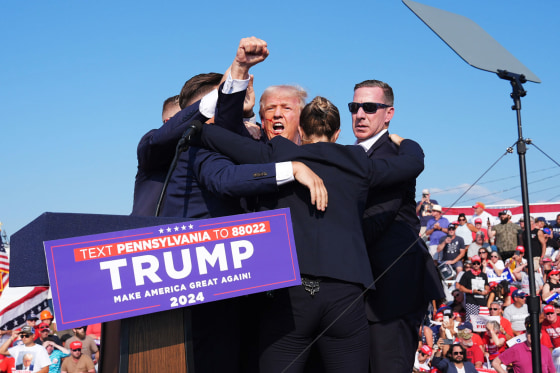
Washington The final report of the House task force that looked into the assassination attempts against Donald Trump was released on Tuesday. It included dozens of recommendations, such as the Secret Service recording all radio communications and reducing protection for foreign leaders so that the president and other high-ranking U.S. officials could be protected.
With regard to the July 13 assassination attempt in Butler, Pennsylvania, where a gunman’s bullet grazed Trump’s ear at a campaign rally, the 180-page report has 25 suggestions. Eleven broad suggestions for the Secret Service are also included.
The terrible and startling events in Butler, Pennsylvania, were avoidable and shouldn’t have occurred, according to the Task Force’s findings. However, the 13-member committee stated in its conclusion that there was not a single instance or choice that permitted Thomas Matthew Crooks to come dangerously close to killing the former president. The former president and everyone present at the campaign event were put in grave danger as a result of a combination of preexisting conditions that compromised the effectiveness of the human and material resources deployed on July 13, 2024, as well as numerous planning, execution, and leadership failures that occurred on and before that date.
Under the direction of Rep. Jason Crow, D-Colo., and Chairman Mike Kelly, R-Pa., the committee commended the Secret Service for stopping a second attack on Trump in Florida later that year: On the other hand, what happened in West Palm Beach, Florida on September 15, 2024, showed how well-executed security systems can prevent an assassination attempt.
The bipartisan panel recommended, among other things, that the Secret Service should record all radio communications, something that did not occur in Butler on July 13. According to the study, the lack of radio records or recordings severely restricts the capacity to reconstruct events for the purposes of investigation or evaluation.
In order to concentrate on the USSS’s main responsibility, which is to protect the President and other important U.S. leaders, the panel also suggested that Congress, the Homeland Security Department, and the U.S. Secret Service examine the protective role the USSS plays for foreign leaders and determine whether such responsibilities can be transferred or eliminated.
Note: Every piece of content is rigorously reviewed by our team of experienced writers and editors to ensure its accuracy. Our writers use credible sources and adhere to strict fact-checking protocols to verify all claims and data before publication. If an error is identified, we promptly correct it and strive for transparency in all updates, feel free to reach out to us via email. We appreciate your trust and support!
